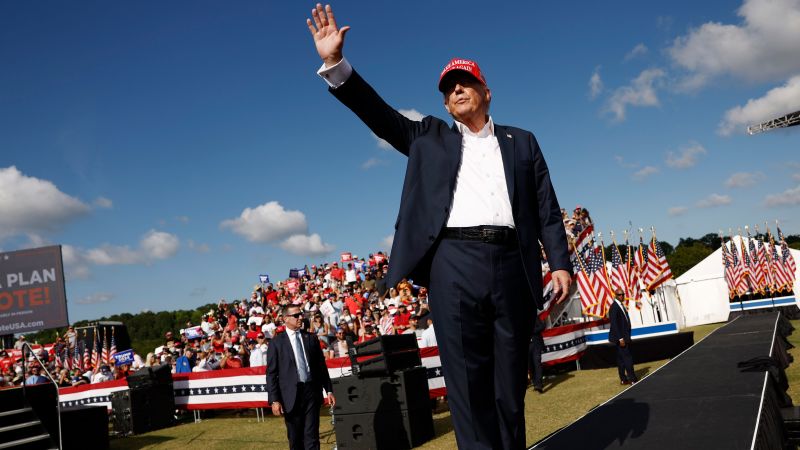In a recent disclosure of financial documents, ex-President Donald Trump has laid bare the financial impact of his business pursuits since returning to the White House in January. These documents, released on a Friday afternoon, span over 230 pages and reveal a remarkable array of income drawn from a multitude of ventures, ranging from cryptocurrency endeavors to licensing deals. As Trump seeks to leverage his political stature, the revelations highlight both his lucrative business dealings and the significant legal obligations that continue to loom over him.
One of the notable aspects of the disclosure is the $57 million token sale through WLF Holdco LLC, a company owned by Trump’s family which is reportedly involved in cryptocurrency operations. This company, along with World Liberty Financial Inc., is said to be actively managed in part by Trump’s sons, showcasing the intergenerational involvement in their financial ventures. Underlining this cryptocurrency engagement, Trump personally holds between $1 million and $5 million in Ethereum, demonstrating his interest in digital assets.
As Trump positions himself as a proponent of cryptocurrency, he contrasts his less restrictive regulatory approach with those of previous administrations. This stance is apparent in his campaign rhetoric, where he has branded himself as the “most crypto-friendly president.” The stated desire to foster a more pro-active environment for digital currencies reflects his broader strategy to intertwine his business interests with his political image.
The disclosures come amidst a backdrop of Trump’s complexities in managing his capacities as a business mogul while holding the office of the presidency. White House Press Secretary Karoline Leavitt defended Trump’s actions, stating that he, alongside Vice President JD Vance and senior White House personnel, has complied with ethics obligations and financial reporting requirements, emphasizing the administration’s commitment to transparency. However, the absence of a requirement for presidents to divest from their holdings raises questions about the ethical implications of maintaining such financial interests while in public service.
Trump’s assets, interestingly, are maintained within a trust managed by his children, and he is noted to take no direct role in the daily management of the Trump Organization. However, he continues to profit from a vast real estate and branding empire, suggesting that the former president remains financially linked to the company despite alleged disengagement. The financing agreements from licensing deals involving his name and imagery — whether used for sneakers, fragrances, or watches — indicate the significant revenue he continues to receive through such arrangements.
A particularly startling revelation emerged regarding royalties stemming from the sale of a Bible authored by Lee Greenwood, bringing in over $1.3 million. Additionally, income from Trump-branded products, including $2.5 million from sneakers and fragrances and $2.8 million from watch sales, illustrates his ability to monetize his celebrity status effectively. Notably, the filings also outline over $50 million in pending liabilities against Trump, including substantial awards to individuals such as E. Jean Carroll, who accused him of sexual assault and defamation.
In a significant legal development, an appeals court recently upheld a $5 million judgment against Trump in Carroll’s case. While the jury concluded that Trump was liable for battery, they did not reach a consensus on the rape allegation, further complicating Trump’s ongoing legal battles. The complexities of these legal judgments underscore the intertwined nature of Trump’s legal challenges with his financial disclosures.
The financial statements reveal that not only Trump but also First Lady Melania Trump has been engaging in lucrative ventures. Disclosures from the filings indicate she earned $475,000 for a speaking engagement, which drew attention for its association with LGBTQ conservatives. Moreover, she has reported income from NFT sales, highlighting the evolving landscape of income generation.
Meanwhile, Vice President JD Vance’s financial details were also released, demonstrating his considerable net worth, albeit not on the same scale as Trump’s formidable financial portfolio. From royalty earnings stemming from his acclaimed memoir, “Hillbilly Elegy,” to various investments, Vance’s disclosures point to a successful financial background as he navigates his political career.
In summary, the financial revelations surrounding Donald Trump illustrate both the enormous wealth accumulated from diverse business ventures and the specter of significant legal liabilities. As his financial disclosures reveal a strategy that blends politics and profit, the scrutiny over the ethical implications remains a pertinent issue in the political discourse, particularly as public figures manage both their political responsibilities and personal interests.



